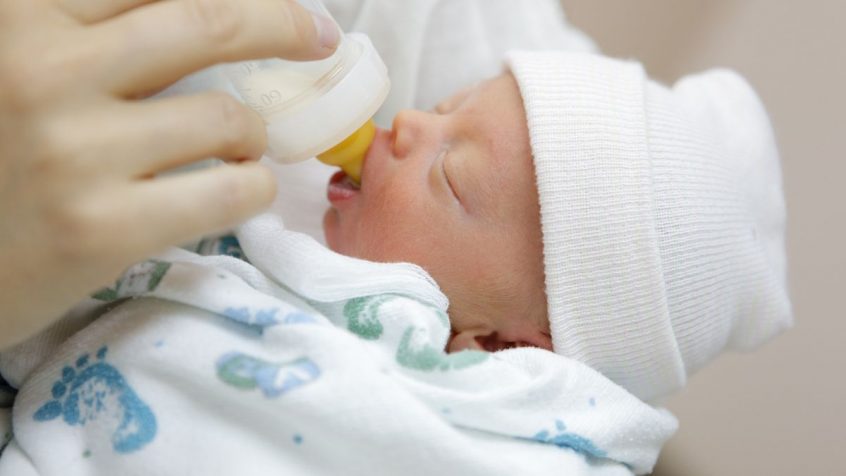Every year 15 million children worldwide are born pre-term – before 37 weeks – and it’s still the main cause of death and disability among newborn babies.
Children who are born early are more likely to develop problems that affect their entire lives such as learning difficulties, problems with their sight and hearing, behavioural issues and cerebral palsy.
But researchers at Edinburgh University claim the more breast milk premature babies are fed while in neonatal intensive care, the greater their level of brain development is.
The cerebral cortex – the part of the brain used for learning and thinking – is usually underdeveloped in premature babies.
But in infants who consume high levels of breast milk it quickly resembles those of babies born at term.
Breast milk is the ideal food with an optimal balance of fats, proteins and minerals that supports brain development.
The Edinburgh researchers scanned the brains of 212 babies who were part of the Theirworld Edinburgh Birth Cohort, a study which monitors the progress of premature babies from birth to adulthood.
The group included 135 babies who were born before 32 weeks of pregnancy and 77 who were born at term.
How premature babies were fed during neonatal intensive care was noted and brain scans for all babies were performed around 40 weeks from conception.
The brain scans revealed that babies who received greater amounts of breast milk from their mother or a donor had a more mature cerebral cortex compared with those who received less, and were similar to the scans of babies born at term.
Dr Gemma Sullivan of Edinburgh University says: “Our findings suggest that brain development in the weeks after pre-term birth is improved in babies who receive greater amounts of breast milk.
“Mothers of pre-term babies should be supported to express breast milk, if they are able to, while their baby is in the neonatal unit as this may offer the best chance of healthy brain development”.
Sarah Brown, chairwoman of the Theirworld project, says: “The research and discoveries from the Theirworld Edinburgh Birth Cohort are truly remarkable.
“This world-first study is equipping scientists and doctors with valuable information that is expanding the frontiers of medical science and improving the life chances of premature babies.
“I will forever be grateful to the families participating in the study who are dedicated to sharing information about their own babies, helping to give other premature babies the best start in life.”

